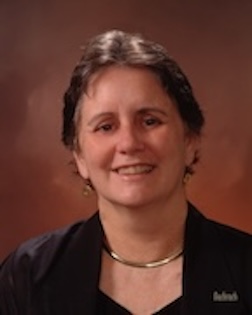Thymic Mimetic Cells: Tolerogenic Masqueraders

Diane Mathis, Ph.D.
Professor of Microbiology and Immunobiology at Harvard Medical School
Harvard Medical School
Dr. Mathis is currently a professor of Microbiology and Immunobiology at Harvard Medical School and holder of the Morton Grove-Rasmussen chair of Immunohematology.
Dr. Diane Mathis obtained a BSc from Wake Forest University and a Ph.D. from the University of Rochester. She performed postdoctoral studies at the Laboratoire de Génétique Moléculaire des Eucaryotes in Strasbourg, France and at Stanford University Medical Center. Dr Mathis returned to France at the end of 1983, establishing a laboratory in conjunction with Christophe Benoist at the Institut de Genetique et de Biologie Moleculaire et Cellulaire in Strasbourg. The Mathis/Benoist lab moved to the Joslin Diabetes Center at the end of 1999. The lab joined the Harvard Medical School Pathology department in spring 2009.
Dr Mathis was elected to the National Academy of Sciences in 2003; the German Academy, Leupoldina, in 2007; and the American Acadamy of Arts and Sciences in 2012.
Dr. Mathis is also an active member of the Commitee on Immunology at Harvard Medical School, the Broad Institute, the Dana Farber/Harvard Cancer Center and the Harvard Stem Cell Institute.
https://videocast.nih.gov/watch=51097
Summary
Autoimmunity results from a breakdown in one or more central or peripheral mechanisms of lymphocyte tolerance induction or maintenance. In the case of T cells, central tolerance is imposed within the thymus, key orchestrators being medullary thymic epithelial cells (mTECs), which play critical roles in both negative selection of T effector cells and positive selection of T regulatory cells. A unique feature of mTECs is expression of thousands of loci encoding antigens typically associated with fully differentiated peripheral parenchymal cells (peripheral-tissue antigens or PTAs). Most of this “misplaced” gene expression is driven by the transcriptional regulator Aire. Loss of Aire in both mice and humans results in a multi-organ autoimmune disease; in addition, there is an association of Aire with several common human autoimmune diseases. Recently, we serendipitously discovered a second, previously under-appreciated arm of thymocyte tolerization: thymic mimetic cells. These cells are a heterogeneous set of (mostly) Aire-dependent, post-Aire mTECs that have co-opted the lineage-defining transcription factors (LDTFs), chromatin-accessibility landscapes, and gene-expression profiles of particular extra-thymic cell-types, while maintaining their mTEC identity. To date, 15 different mimetic-cell subtypes have been identified in mice, including tuft, muscle, ciliated, microfold and sebocyte mTECs. Accrual of thymic mimetic cells depends critically on the LDTF(s) they express and differentially on Aire. Directing expression of a neoantigen to mimetic cells tolerizes cognate thymocytes. The human thymus also has mimetic mTECs, with some interesting differences in distribution compared with mice. Why have these two distinct layers of central T cell tolerization?
Objectives:
1) To learn about a previously under-appreciated player in tolerization of T cells in the thymus: thymic mimetic cells.
2) To understand how the two major medullary tolerance mechanisms – induction of misplaced transcripts and differentiation of misplaced cells – integrate to provide a strong safety net.
This page was last updated on Monday, August 28, 2023